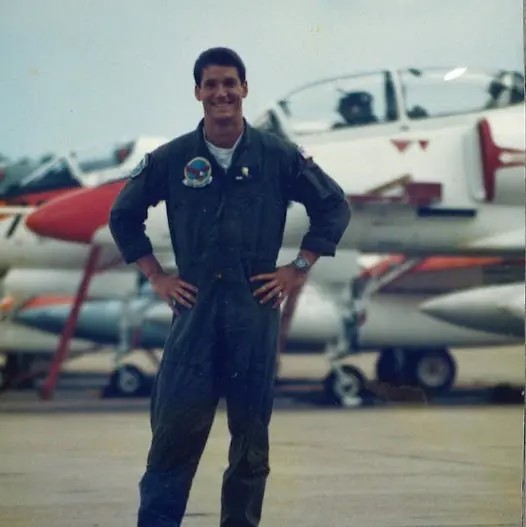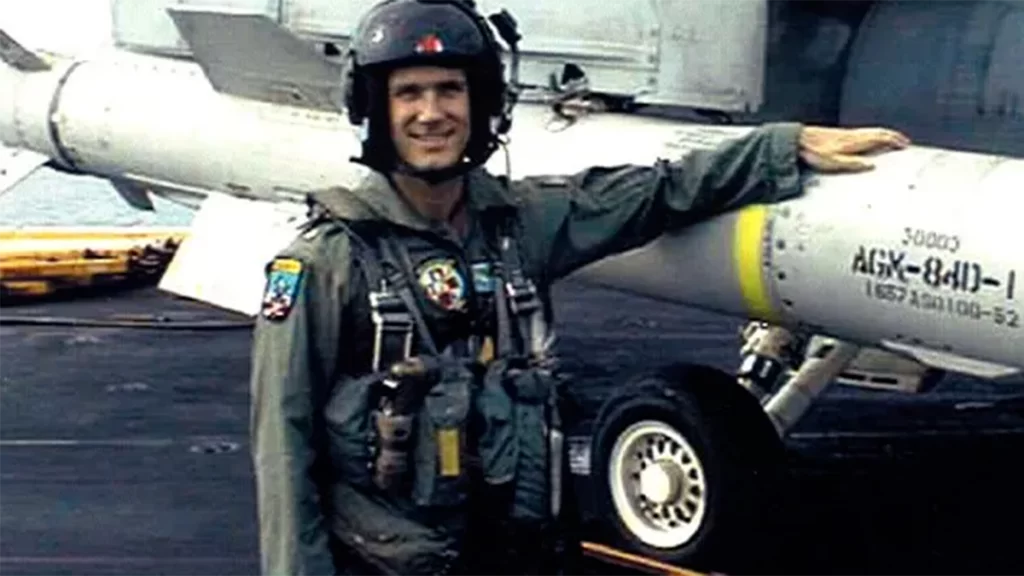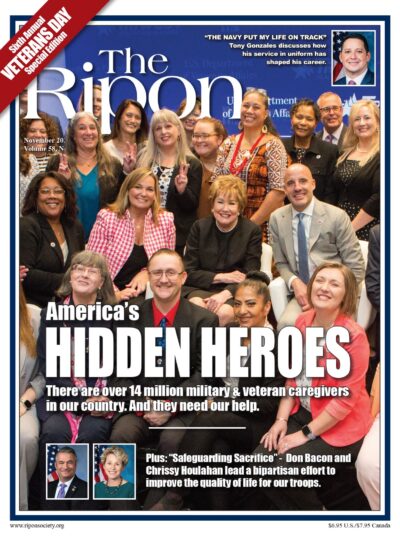
Across our nation this Veterans Day, Americans will thank veterans for their service. Some will offer words of gratitude. Others will shake a hand or pick up the tab for a vet or service member in uniform. We cherish and revere our veterans because we know they’re willing to do what many aren’t—at a minimum, sacrificing time with their families when duty calls, traveling to far-off lands in defense of freedom and the American ideal. It can also include giving the last full measure of devotion – their lives, for which we pay tribute on Memorial Day.
For me, Veterans Day represents more than simply a day on the calendar to recognize those who wore the uniform. It’s a day when I reflect upon what made my own service so meaningful, because truthfully, I received so much more than I gave. On Veterans Day, I’m reminded how weighty it was as a young midshipman to be part of something much larger than myself, to join the ranks of so many brave warriors before me. I’m reminded of the invaluable lessons I learned about leadership and the gains we can make when we put unity, duty, and service above self.
As a smalltown kid from Florida, I was impacted profoundly on Induction Day at the Naval Academy. My squad included an African American from Opelika, Alabama, a Polish American from the Bronx, a Mexican American from Fort Worth, the son of an academy grad killed in Vietnam from Maine, another from San Francisco, and all points in between. We came from all walks of life—northerners and southerners; cities, suburbs and farms; rich and poor. We had different accents, backgrounds, and worldviews. But by the end of that first day, we all shared something in common. With shaven heads and fresh uniforms, we each swore the same oath to support and defend the United States. In that moment, our differences faded away.

With shaven heads and fresh uniforms, we each sworn the same oath to support and defend the United States. In that moment, our differences faded away.
It was drilled into us from the onset—and certainly remained a theme throughout my entire Navy career—we must look beyond our differences. We don’t highlight them, and they don’t define us. We look past them and work together as a team. We took this job together. We all bleed the same red. We are united, connected by our duty to serve our country, defend the Constitution, and uphold the values that make America great.
During my first deployment on the USS Forrestal, an African American chief petty officer took me down to the mess decks. Reminiscing on his earlier years in the Navy, he remarked how far the military had come since he first started. He assured me, back then, we couldn’t have walked those mess decks together, as there had been race riots aboard carriers. During that era, the military evolved and became the best in the country at stepping beyond division to advance the aspirations of the civil rights movement.
Those deeply engrained values stayed with me as I later moved to the private sector. When I was first elected to Congress, I immediately began connecting with other veterans. From my own service, I knew fellow vets would have a similar approach to legislating. Serving in the Armed Forces meant, at least at some point in their career, they learned how to overcome differences and bring people together to accomplish their goals.

In Congress, while different from the military in the obvious ways, many of the same challenges exist. Like a recruit’s first day of basic training, Members of Congress arrive to serve in a body as diverse as the U.S. Each brings their own unique experiences and viewpoints to bear. Yet, we all have one mandate, a duty, a shared mission: putting differences aside to serve Americans and solve our country’s greatest challenges. Just as in the military, fidelity to oath means our work must transcend personalities and personal preferences. We must resist our base instincts to retreat to our corners, work within our silos and negotiate only in zero-sum propositions. Success in Congress—which I believe means defending the Constitution and relentless pursuit of what framer Gouverneur Morris called a “more perfect union”—demands compromise and putting mission above individual interests.
This Veterans Day, like those before, is more than mere observance for me. It serves as a profound reaffirmation of the core values instilled in me by military service that shaped my life. It’s also a personal renewal of the oath I first swore in 1982 to put country, and duty, before myself. As I serve in Congress, hoping to return even a fraction of what was given me during my time in the Navy, I strive to bring this spirit to the halls of the Capitol. I believe my neighbors who entrusted me to represent them deserve nothing less.
Franklin represents the 18th District of Florida in the U.S. House of Representatives. His first career was as a Naval Aviator, where he flew jets from the decks of 13 aircraft carriers during 26 years of service, including 14 years on active duty, followed by 12 years in the reserves. He had numerous deployments to the Mediterranean, Persian Gulf, and North Atlantic, and saw combat operations in the Gulf, Bosnia, and Kosovo. He was recalled to active duty twice after 9/11 with U.S. Central Command.




